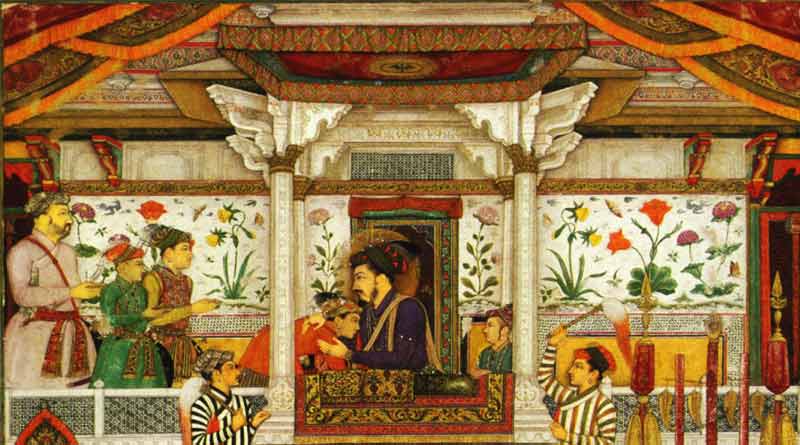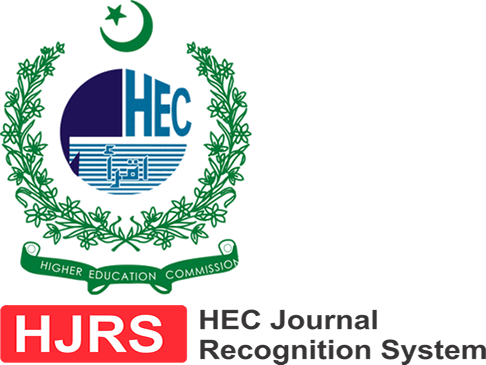عہد مغلیہ اور نظام احتساب: ایک تجزیاتی مطالعہ
THE MUGHAL ERA AND THE ACCOUNTABILITY SYSTEM: AN ANALYTICAL STUDY
DOI:
https://doi.org/10.5281/zenodo.7566627Keywords:
Accountability, Mughal Empire, Islamic Caliphate, History, SocietyAbstract
Islam is a complete code of life which gives the principles of living. Islam has also given principles to maintain the order and peace of the society. Enjoining good and forbidding evil (Amar bil Ma'roof and Nahi unil-Munkar(is given great importance in Islam, its status is obligatory in Islam. It is the duty of every person according to his ability to destroy the evils and spread the good. If there is no prevention of oppression from the society, the society cannot become the cradle of peace and order; therefore, the elimination of oppression in the society is the main goal of Islam. On the basis of this principle, the institution of accountability or accountability was established in the Islamic state, the purpose of which is to establish what is good and prevent evil, to end oppression and abuse, and to establish justice and fairness, etc. This institution has existed in one form or another during the rule of Muslims. There was a very strict accountability in the Islamic state. Be it the era of the Prophet or the era of the Rashid Caliphs, the Umayyad Caliphate or the Abbasid Caliphate, the Ottoman Turks or other regions under the influence of Muslims, accountability had a fundamental status in every era. If we look at the Mughal system of government in India, accountability has always been central. Historians of this era have praised the accountability system of the Mughals. In this paper, the accountability system of the Mughals has been clarified.
References
ایم اطہر علی ، دی پاسنگ آف ایمپائر: دی مغل کیس ،( ماڈرن ایشین اسٹڈیز 1975 ) ج3،ص 385–396
مظفر عالم، مغل شمالی ہندوستان میں سلطنت کا بحران: اودھ اور پنجاب، 1707،ص48
محمدا ملیکہ ، ہندوستان میں جامع ثقافت کی بنیادیں (آکار کتب، جنوری 2007 )، ص 300
ظہیر بابر ، دی سائنس آف ایمپائر: سائنٹفک نالج، سولائزیشن، اینڈ کالونیل رول ان انڈیا،( اسٹیٹ یونیورسٹی آف نیویارک پریس1996)، ص 82-89
جسونت لال مہتا ، قرون وسطی کے ہندوستان کی تاریخ میں اعلی درجے کا مطالعہ ( اسٹرلنگ پبلشرز پرائیویٹ لمیٹڈ 1984) ج 2 ص59
جسونت لال مہتا ، قرون وسطی کے ہندوستان کی تاریخ میں اعلی درجے کا مطالعہ ، ج 2 ص 60
۔ مولانا عبدالحفیظ، مصباح الغات، (اسلامی اکادمی، 1988ء) ، ص 152۔
ڈاکٹر ایس ایم ناز ، اسلامی ریاست میں محتسب کا کردار، (ادارہ تحقیقات اسلامی،1999) ص 17
شیخ الاسلام ابن تیمیہ ، اسلام کا نظام حسبہ، (ترجمہ و حواشی: اکرام الحق یسین،( شریعہ اکیڈمی ، 2006)۔ ص 15
ایچ ـبی ـ خان ، برصغیر پاک وہند کی سیاست میں علماء کا کردار،( قومی ادارہ برائے تحقیق تاریخ و ثقافت،1985)، ص 6-7
ابن حسن، سلطنت مغلیہ کا مرکزی نظام حکومت،ترجمہ :آئی ـ یے ـ ظلی،(قومی کونسل برائے فروغ اردو زبان حکومت ہند،1999)، ص 330، 331۔
ابن حسن، سلطنت مغلیہ کا مرکزی نظام حکومت،ترجمہ :آئی ـ یے ـ ظلی ، ص 331
علامہ ابو الفضل ، آئین اکبری، ترجمہ :محمد فدا، (سنگ میل پبلی کیشنز لاہور،س،ن۔) ص 578، 579
علامہ ابو الفضل ، آئین اکبری، ترجمہ :محمد فدا ، ص 575
نورالدین جہانگیر، تزک جہانگیری، ترجمہ: مولوی احمد علی، (سنگ میل پبلی کیشنز، 1955) ، ص 42
ماثرالامراء، شاہنواز خان ،ترجمہ: محمد ایوب ، (اردو سائنس بورڈ، لاہور، 2007ء)، ج2، ص 272
نورالدین جہانگیر، تزک جہا نگیری، ص 44
نورالدین جہانگیر، تزک جہا نگیری، ، ص66
ایس ایم ناز، ڈاکٹر، اسلامی ریاست میں محتسب کا کردار، (ادارہ تحقیقات اسلامی،1999ء)، ص 345
بزمی انصاری، الحبہ، مشمولہ اردو دائرہ معارف اسلامیہ، (دانش گاہ پنجاب، لاہور،1973ء)، ج 2، ص 202
اسلامی ریاست میں محتسب ک

Downloads
Published
How to Cite
License
Copyright (c) 2023 AL MISBAH RESEARCH JOURNAL

This work is licensed under a Creative Commons Attribution 4.0 International License.
AL-MISBAH Research Journal is full open access and licensed under Creative Commons Attribution 4.0 International License; and Published by: Research Institute of Culture & Ideology (REINCI), Islamabad, Pakistan. This allows the research community and the general public to gain unlimited, free and immediate access to scholarly articles, and to reuse the content freely provided that proper attribution is given to the original authors.









